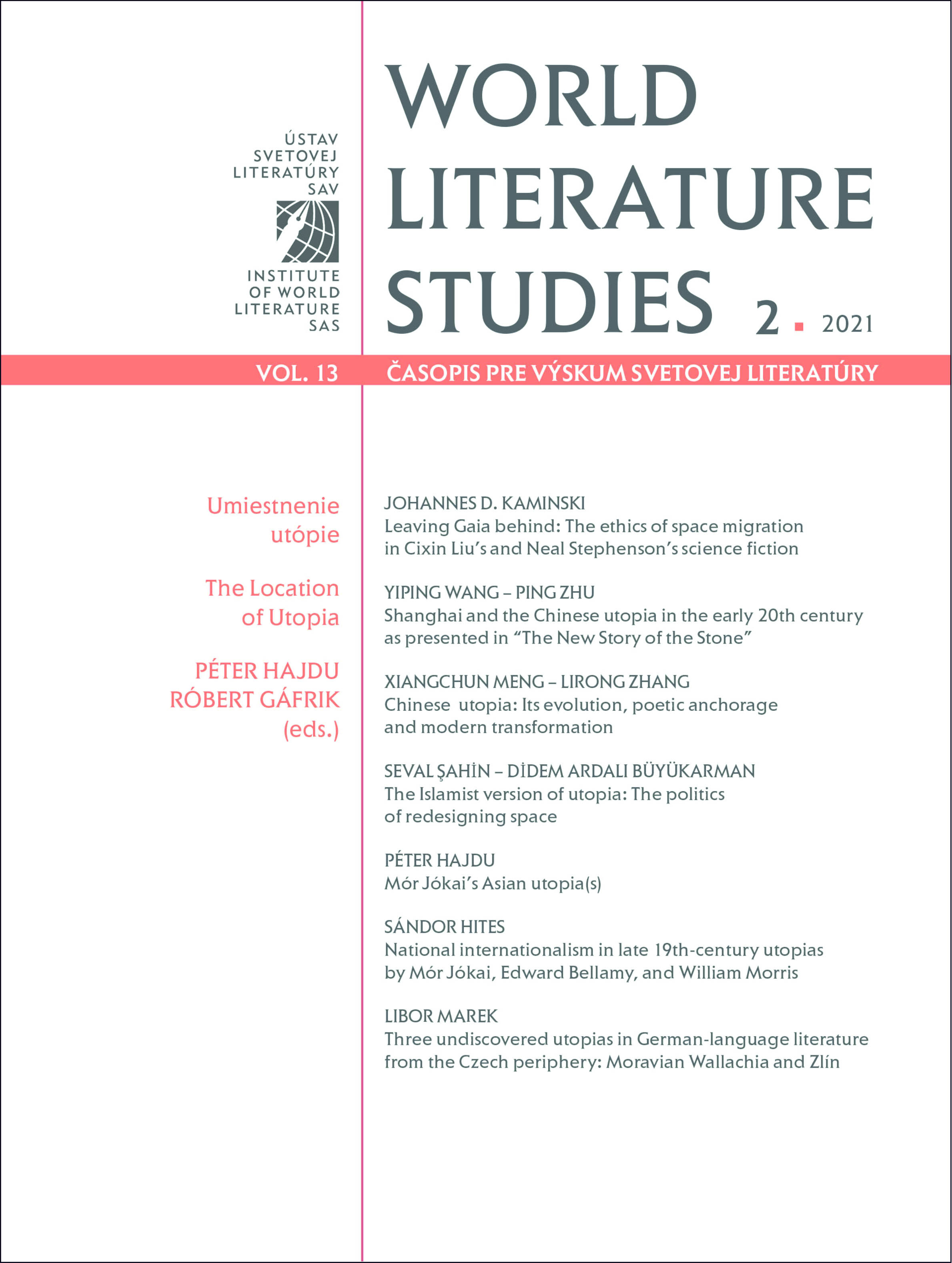Mór Jókai’s Asian utopia(s)
Mór Jókai’s Asian utopia(s)
Author(s): Péter HajduSubject(s): Language and Literature Studies, Studies of Literature, Comparative Study of Literature, Hungarian Literature
Published by: Ústav svetovej literatúry, Slovenská akadémia vied
Keywords: Nationalism; 19th-century literature; East-West comparison; Pornotopia; Ecotopia
Summary/Abstract: The paper analyzes Mór Jókai’s The Novel of the Century to Come from the viewpoint of the local aspects of cultural embeddedness of the complex and competing utopian discourses. The whole novel describes a future in which, after difficult struggles, a globally united and perfect society is created. However, two different small-scale utopias are also described; one of them (Otthon) is located in Europe and shows traits of the national-capitalist dream; the other (Kin-Tseu) is imagined to be in Central Asia and presented first from the perspective of Chinese historical sources, in a form similar to a colonialist pornotopia. Then an omniscient narrator proves that the Chinese image of Kin-Tseu is false, and presents it as it “really” is. This latter utopia solicits an ecocritical reading, since its basic problem, i.e. the sustainability of a growing population in a closed environment, is crucial for current ecocriticism. The experimentation with various (including Western and Eastern) utopian traditions functions as a unique poetic feature in Jókai’s novel.
Journal: World Literature Studies
- Issue Year: 13/2021
- Issue No: 2
- Page Range: 56-68
- Page Count: 13
- Language: English

